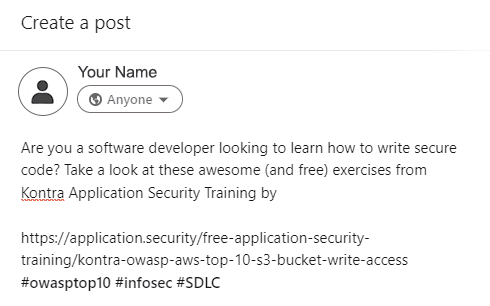In general, interviews aren’t super fun. No matter how much you’ve prepared or how confident you are in your abilities, trying to convince a potential employer that you’re the best fit for the job can be pretty awkward and uncomfortable.
The same awkwardness can certainly transfer in a phone interview. Not only can you not read your interviewer’s body language or facial expressions, but you also can’t use those nonverbal cues to your advantage. With body language being so important in our regular communication, it can be difficult to fully convey your confidence as you answer the important questions.
But don’t fear, we have 5 tips to help you perfect your phone interviewing skills, and succeed in any over-the-phone situation.
1. Get Personal
If you know who will be conducting your phone interview, take the time to read up on them before the interview. You may be able to find opportunities to connect with the interviewer, which could possibly increase your chances of getting to the next round of the interview process.
LinkedIn can be an excellent place to start your search. Look up the interviewer’s profile and pay particular attention to their:
- Educational history (school, degree, etc)
- Hometown or current location
- Previous employers
- Any interests (Check out their “Volunteering,” “Interests,” and “Causes” sections)
You never know how the conversation will go. If you know that you and the interviewer have something in common, that informal part of your conversation could be the reason you excel further in the process.
2. Be Clear, Concise, and Courteous
One of the biggest challenges of a phone interview is not being able to read nonverbal cues from your interviewer. Also known as body language, these cues can be vital in communicating with and understanding your interviewer. However, by being clear and concise with your answers, you’ll be able to help them recognize when you’re done speaking.
Avoid long-winded answers that trail off with uncertain endings. Instead, be authoritative and confident in your response by finalizing your answers in a simple, concrete way. One of the best ways to do this is to summarize your answer into one sentence that also restates the question.
For example, if you were asked, “What were your sales expectations and how many new clients did you bring to the company last year?” you could answer accordingly by starting with “The sales expectation in my previous role was…” and finish with “… and I brought X number of clients to the company in the last year.” This type of answer fulfills the question asked and gives confirmation to the interviewer that they can move onto the next question.
3. Dress the Part and Smile
Even though you could technically participate in your phone interview while wearing pajamas or mismatching socks, career experts recommend preparing just as you would for an in-person interview by dressing up. This means you’ll want to dress for the job you want. If you wear clothing that makes you feel confident, chances are you’ll sound that way on the phone, too.
You should also prepare your physical setting appropriately. Put away or avoid things that could distract you, including your pets, television, or roommates. Another pro tip: sit in front of a mirror for your interview! Being able to see yourself as you answer questions will encourage you to use body language, like smiling, that will help your personality shine over the phone.
4. Be Over Prepared
The obvious key to nailing any kind of interview is to be as prepared as possible, and that goes for phone interviews as well. You should begin your preparations several days before the actual phone call. Take the time to learn about the company and the role.
Make a list of questions you anticipate will be asked, and come up with several different options for answers. It also helps to come up with examples to back up your skills and experience. Practice giving your answers and examples beforehand in the form of a mock interview. The more prepared you are, the better your chances of seamlessly showcasing your qualifications for the job you’re going for.
As you’re preparing your space, make sure you have easy access to the job description, your resume, references, letters of recommendations, or any other documents that you think might be referenced in the interview (like projects, initiatives, or case studies you led/handled). Make sure to have a pen and paper handy, too, as you might get more information from your interview that you’ll want to reference down the line.

5. Taking the Next Steps
Finish your interview by asking if there are any additional questions your interviewer has for you. Ask them if there’s anything on your resume or anything you discussed that could be seen as a concern from your interviewer — better to clear up any challenges right there and then. Before you hang up, be sure to ask questions about the next steps and thank them for their time.
Shortly after finishing the phone interview, send an email to the interviewer to show your dedication to securing the positon and your ability to follow through. You’ll thank them for taking the time to speak with you, learn about your professional experience and qualifications and sign off with your hopes of hearing from them on next steps soon. It doesn’t have to be anything long or eloquent; just a simple message to show your appreciation for the interviewer’s time and effort will suffice.
Interviews don’t have to be intimidating or difficult, no matter how they’re conducted — via the phone, video conference, or in person. And like most things in life, practice makes perfect. Don’t be discouraged if one job doesn’t work out — there are plenty more opportunities out there for you to shine!
We hope these tips help you on your next phone interview.
But wait — you can get even more assistance with finding your future career! As a student in ThriveDX’s Cybersecurity Professional Bootcamp or any ThriveDX-powered program, you’ll be able to work 1:1 with our Career Coaches who can assist with tailoring your resume and preparing for technical job interviews. Plus, you’ll have access to networking opportunities with alumni, subject-matter experts, and potential employers — all of which may help you secure a better career. That’s because at ThriveDX, we’re all about Empowering your Future.


